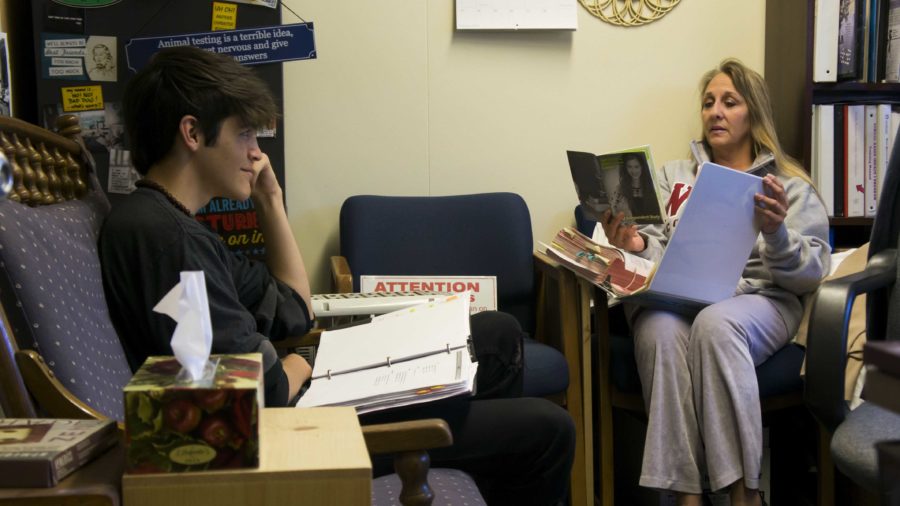As Economy Lags, College Hopes Fade
Christine Bruggman, a Cam High counselor converses with Ryan Duggar.
With the recent recession still bogging down the economy, Cam High students face an uncertain future.
The cost of tuition for many colleges is still climbing and most Cam High students have to recheck their financial pathway to college.
“It hasn’t allowed me to follow the path I wanted to take,” said Erika Giroux, senior, while describing the effects of the recession on her college plans.
According to College Board, the price for higher education has risen by 2.3% annually between 2003 and 2014 for private non-profit colleges. Many Cam High students claim their parents can no longer afford college.
While the recession lingers, choices as to how students will pay for college have been an all too common topic. “If I want to go to college, it would have to be either through loans or working through it,” said Michael Alcozar, junior. “I’m definitely going to be dependent on scholarships.”
The strain on the budget for many community scholarships have also added to the tension by making them a highly sought-after commodity. “It’s almost a full time job,” said Giroux, describing the work needed to be granted a scholarship. This, coupled with the increasing tuition cost, has made the competition for higher education much more difficult.
Between managing grades, volunteering for service hours, planning for college, and trying to enjoy their high school career, the effects of the recession on Cam High students has resulted in diverging attitudes toward attending college at all.
“I’m probably going to get a job after high school or in high school,” said Tony Lisi, junior. “I don’t want to burden my parents with my expenses. I want to pull my own weight.”
Despite all this, Federal Aid provided by FAFSA (Free Application for Federal Student Aid) still provides hope for some students who are close to attending the college they want.
“I think FAFSA is a good idea,” said Brandon Garza, junior. “Kids will be helped by the government to pay for college.” In fact, most students will apply for some form of government aid before they attend a college, as costs continue to increase, and the economy lags behind.

















































































![Senior Ditch Day... Relaxation or Truancy? [Video]](https://achsstinger.com/wp-content/uploads/2017/10/IMG_7119-900x599.jpg)
![Heavy Rain Hits Cam High [video]](https://achsstinger.com/wp-content/uploads/2017/02/maxresdefault-900x506.jpg)



